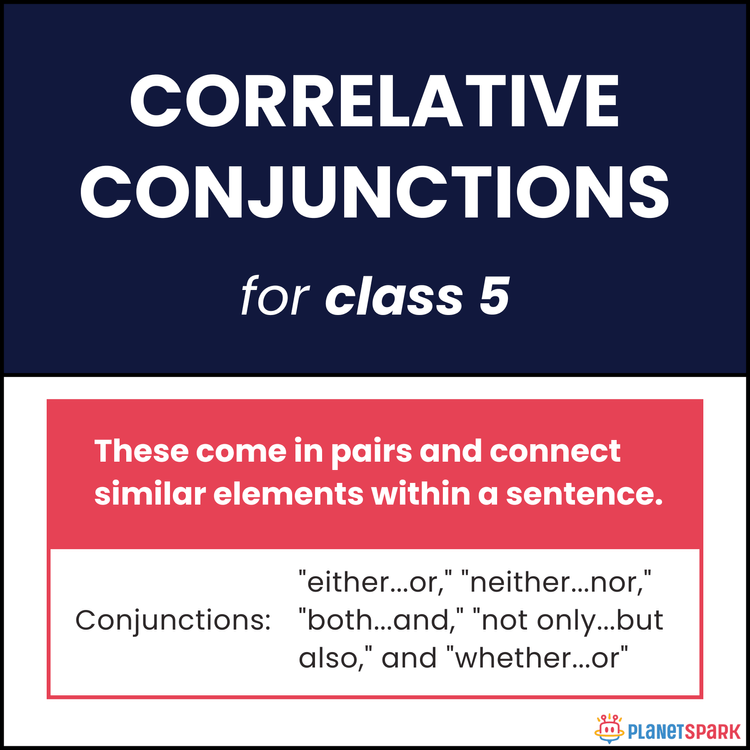Direct and Reported Speech in Conversation

Table of Contents
- What Is Direct Speech?
- What Is Reported Speech?
- The Importance of Direct and Reported Speech in Conversation
- Key Rules for Changing Direct Speech into Reported Speech
- Reporting Questions
- Reporting Commands and Requests
- Reporting Suggestions and Advice
- Reporting Exclamations and Emotions
- Reporting Statements in Real Conversations
- Common Errors to Avoid in Reported Speech
- Advanced Reporting Techniques
- Practice Examples for Better Understanding
- Why Choose PlanetSpark?
When we communicate, we often share what others have said, and that’s where direct and reported speech become essential. The goal is simple: to master how to express spoken statements, questions, and commands indirectly yet correctly. This blog will explain everything you need to know about direct and reported speech in English conversations. You’ll learn the core rules, reporting verbs, tense changes, pronoun shifts, and punctuation differences, all with practical examples to make your understanding clear.
What Is Direct Speech?
Direct speech is when you quote the exact words someone said, enclosed in quotation marks. It presents speech as it was originally spoken.
For example:
- She said, “I am reading a book.”
Direct speech gives immediacy and authenticity to communication. It is often used in stories, conversations, and dialogues to make the scene engaging and real. However, using it in formal writing or professional speech may not always be appropriate since it sounds too conversational.
Key identifiers of direct speech:
- Quotation marks (“ ”) are used.
- The exact words of the speaker are retained.
- Reporting verbs like said, asked, or replied introduce the speech.

What Is Reported Speech?
Reported speech, also called indirect speech, tells what someone said without quoting them directly. The meaning remains the same, but the structure and tense change.
For example:
- She said that she was reading a book.
Reported speech is more formal and smoother in conversations, especially in storytelling, reports, or professional communication. Instead of quoting, you report the message by making necessary grammatical adjustments.
Key identifiers of reported speech:
- No quotation marks are used.
- The tense of the original sentence usually shifts back.
- Pronouns and time expressions are often changed
The Importance of Direct and Reported Speech in Conversations
Understanding and applying direct and reported speech correctly enhances both written and spoken communication. In conversations, it helps you retell events, share dialogues, and express messages precisely. For instance:
- Direct: He said, “I will come tomorrow.”
- Reported: He said that he would come the next day.
Notice how the sentence shifts smoothly while keeping the intended meaning intact. This transformation shows your grammatical control and ability to communicate ideas naturally.
In spoken English, especially during storytelling or interviews, reported speech adds professionalism and flow. It ensures that you can narrate or quote people without sounding repetitive or informal.
Unlock your child’s grammar skills today!
Enroll in PlanetSpark and watch them write and speak with confidence.
Key Rules for Changing Direct Speech into Reported Speech
Converting direct speech to reported speech involves systematic changes in tense, pronouns, and time expressions. Below are the essential guidelines:
1. Tense Change (Backshifting)
When the reporting verb (e.g., said, told) is in the past tense, the verb in the reported clause usually shifts one step back.
| Direct Speech | Reported Speech |
|---|---|
| “I am tired.” | She said she was tired. |
| “I went to the park.” | She said she had gone to the park. |
| “I will call you.” | She said she would call me. |
However, if the reporting verb is in the present or future tense, the original tense usually stays the same.
Example: He says, “I like this movie.” → He says that he likes this movie.
2. Pronoun Changes
Pronouns change based on who is speaking and to whom the message is reported.
Example:
- Direct: She said, “I am happy.”
- Reported: She said that she was happy.
Here, I changed to she because the speaker’s perspective has shifted.
Similarly:
- Direct: He told me, “You are late.”
- Reported: He told me that I was late.
These shifts are crucial for maintaining clarity when converting speech forms.
3. Time and Place Changes
Words that refer to time or place in direct speech must also be adjusted in reported speech.
| Direct Speech | Reported Speech |
|---|---|
| today | that day |
| tomorrow | the next day |
| yesterday | the previous day |
| now | then |
| here | there |
Example:
- Direct: He said, “I will meet you here tomorrow.”
- Reported: He said that he would meet me there the next day.
These changes ensure that the sentence remains meaningful even when told at a different time or location.
Reporting Questions
When transforming questions, change the word order and remove the question mark. The structure depends on whether it’s a yes/no question or a wh-question.
1. Yes/No Questions
Use if or whether to introduce the reported clause.
- Direct: She asked, “Do you like tea?”
- Reported: She asked if I liked tea.
2. Wh-Questions
Retain the question word (what, where, why, when, who) but change the sentence to a statement form.
- Direct: He asked, “Where are you going?”
- Reported: He asked where I was going.
Punctuation changes are vital; never end reported questions with a question mark.

Reporting Commands and Requests
Commands and requests in direct speech usually begin with verbs like tell, ask, order, advise, or request. When converting them to reported speech, the structure changes to include the to-infinitive form of the verb.
Structure:
Reporting Verb + Object + to + Base Verb
Examples:
- Direct: She said, “Close the window.”
Reported: She told me to close the window. - Direct: He said, “Please help me with this.”
Reported: He requested me to help him with that.
Here, polite requests often use “asked” or “requested,” while firm instructions may use “ordered” or “commanded.” The reported form removes quotation marks and focuses on the action rather than the exact words.
Tip: Avoid using “that” in commands or requests; instead, rely on the infinitive form to make the sentence natural and grammatically correct.
Reporting Suggestions and Advice
When reporting suggestions, the reporting verbs suggest, advise, and recommend are commonly used. Suggestions are not direct commands; they convey ideas or guidance.
Structure:
Reporting Verb + that + Subject + Base Verb
or
Reporting Verb + Gerund (–ing form)
Examples:
- Direct: She said, “You should take a break.”
Reported: She advised that I take a break. - Direct: He said, “Let’s go for a walk.”
Reported: He suggested going for a walk.
Notice how the suggestion becomes grammatically smoother and contextually formal when converted to reported speech.
Quick Grammar Note:
Avoid using to after verbs like suggest or recommend. For example:
Incorrect: She suggested taking a walk.
Correct: She suggested taking a walk.
Join PlanetSpark’s program and practice using direct and reported speech through interactive speaking drills and real-world roleplays.
Reporting Exclamations and Emotions
Exclamations express feelings such as surprise, happiness, anger, or sadness. When converting them, we remove the exclamation mark and add phrases like exclaimed with joy, exclaimed in anger, said with surprise, etc.
Examples:
- Direct: She said, “What a beautiful view!”
Reported: She exclaimed that it was a beautiful view. - Direct: He said, “Oh no! I missed the bus!”
Reported: He exclaimed with regret that he had missed the bus.
While reporting emotions, focus on conveying the mood rather than replicating the punctuation. This helps your sentences sound natural and formal.
Reporting Statements in Real Conversations
Let’s see how direct and reported speech appear in natural, conversational contexts.
Example 1:
- Direct: Rohan said, “I will call you tomorrow.”
Reported: Rohan said that he would call me the next day.
Example 2:
- Direct: She said, “I have finished my homework.”
Reported: She said that she had finished her homework.
Example 3:
- Direct: They said, “We are moving to London.”
Reported: They said that they were moving to London.
When retelling conversations, using reported speech creates a smooth narrative flow and avoids repetitive quoting. This skill is especially important in storytelling, interviews, and professional communication.
Give your child the gift of flawless English!
Join PlanetSpark now and master grammar in a fun, interactive way.
Common Errors to Avoid in Reported Speech
Even proficient speakers often make mistakes while reporting speech. Here are the most frequent ones to avoid:
- Forgetting tense shifts: Remember to backshift when the reporting verb is in the past tense.
- Mixing pronouns: Always adjust pronouns according to the speaker and listener.
- Ignoring time/place changes: Replace words like today, tomorrow, and here with appropriate substitutes.
- Leaving quotation marks: Reported speech should never retain direct punctuation.
- Wrong reporting verbs: Choose verbs that suit the tone told, asked, advised, exclaimed, etc.
Correcting these mistakes ensures clarity and accuracy in your English communication.
Advanced Reporting Techniques
Once you master the basic conversion of statements, questions, and commands, it’s time to understand the advanced nuances that make your reported speech sound fluent and natural.
1. Reporting Modal Verbs
Modal verbs such as can, may, might, shall, and will change in reported speech.
| Direct Speech | Reported Speech |
|---|---|
| “I can solve this problem.” | He said he could solve that problem. |
| “She may join us.” | He said she might join them. |
| “I will go.” | He said he would go. |
Some modals, like could, would, should, might, and ought to, do not change.
2. Reporting Mixed Sentences
Sometimes, sentences contain both statements and questions or more than one clause. In these cases, maintain tense consistency and logical meaning throughout.
Example:
- Direct: She said, “I am tired, but I’ll come with you.”
- Reported: She said that she was tired but would come with me.
These examples show how fluency depends on logical transitions rather than just following mechanical rules.
Ready to see your child shine in English?
Sign up for PlanetSpark and make learning engaging and effective.
Practice Examples for Better Understanding
Practice is the best way to build confidence. Here are a few sentences for you to convert:
- He said, “I will finish my work today.”
- She said, “Where is the library?”
- They said, “We have completed our assignment.”
- She said, “Please don’t talk during the lecture.”
- He said, “Wow! What a performance!”
Try converting these into reported speech. The more you practice, the more naturally you’ll apply the rules in both writing and speaking.
Reported speech is not just a grammar rule; it’s an essential tool for effective communication. It allows you to share messages, stories, and information without distorting the original intent. By mastering direct and reported speech, you enhance your storytelling skills, refine your written English, and speak with clarity in everyday interactions.
Whether it’s formal communication, creative writing, or casual conversation, knowing how to shift between direct and indirect speech helps you sound confident and accurate. Keep practicing with different sentence types to strengthen your understanding.
Why Choose PlanetSpark?
If you want to transform your English from basic to fluent, PlanetSpark offers structured learning designed for all age groups.
Here’s why thousands of learners trust us:
- Live interactive classes with expert mentors
- Grammar-to-speaking approach to build fluency naturally
- Engaging learning activities that make practice fun
- Personalized feedback to improve faster
- Storytelling and public speaking sessions for real-world confidence
- Flexible scheduling to learn at your own pace
- Recognized certification upon completion
Join PlanetSpark today and see how quickly your communication skills evolve.
Frequently Asked Questions
Direct speech quotes the speaker’s exact words using quotation marks, while reported speech paraphrases the message without them.
No, only when the reporting verb is in the past tense. Universal truths or present-tense reporting do not require tense changes.
Yes, but it’s optional. Using “that” makes formal writing clearer, though it can be omitted in casual speech.
Change the question to a statement format and remove the question mark. Use “if” or “whether” for yes/no questions and keep the “wh-word” for others.
Download Free Worksheets
Personalized Communication Report
Record a video to get a AI generated personalized communication report for your child

Hi There, want to try these
tips for your child with
LIVE with our expert coach?
Let's check your child's
English fluency

